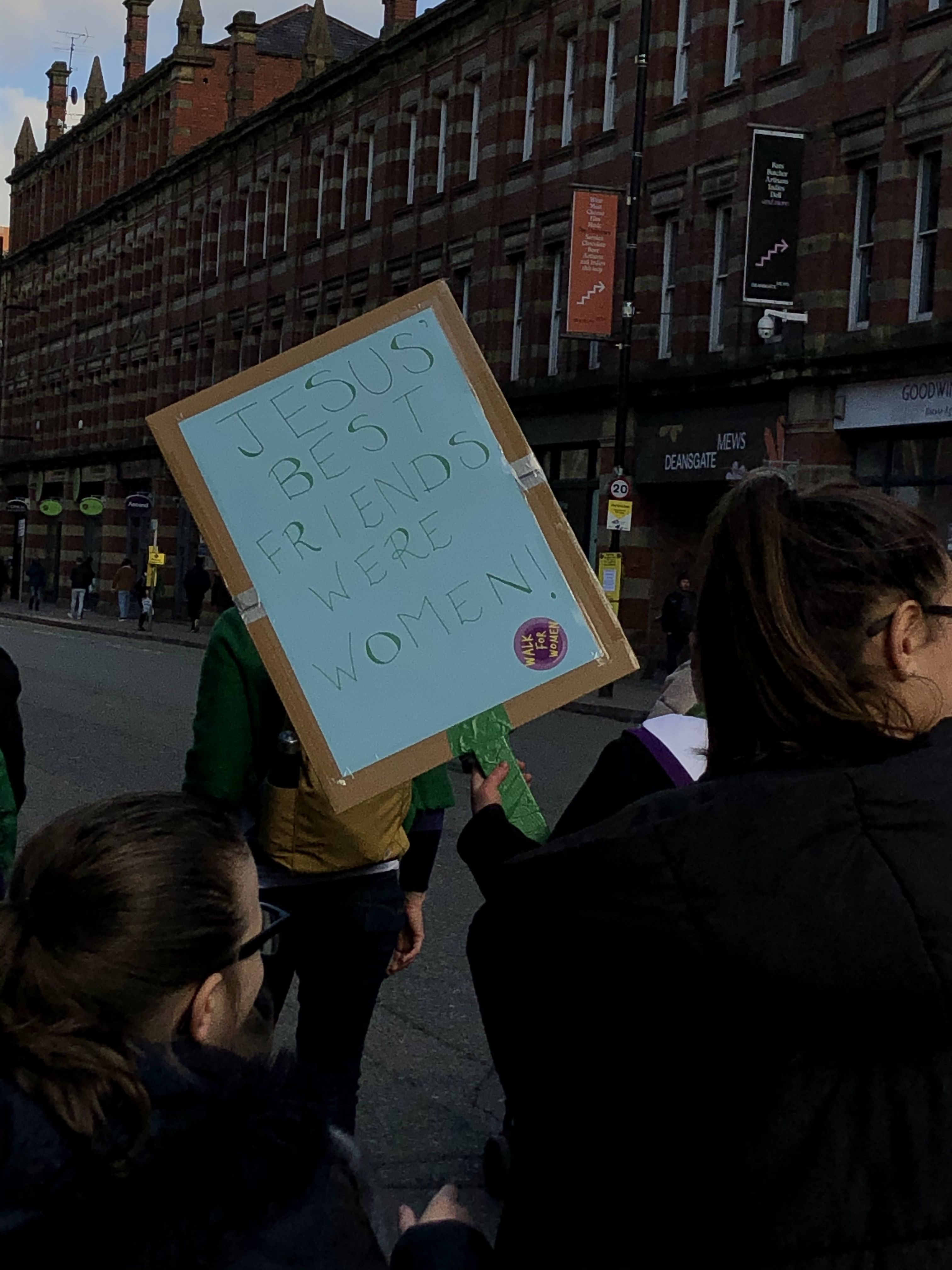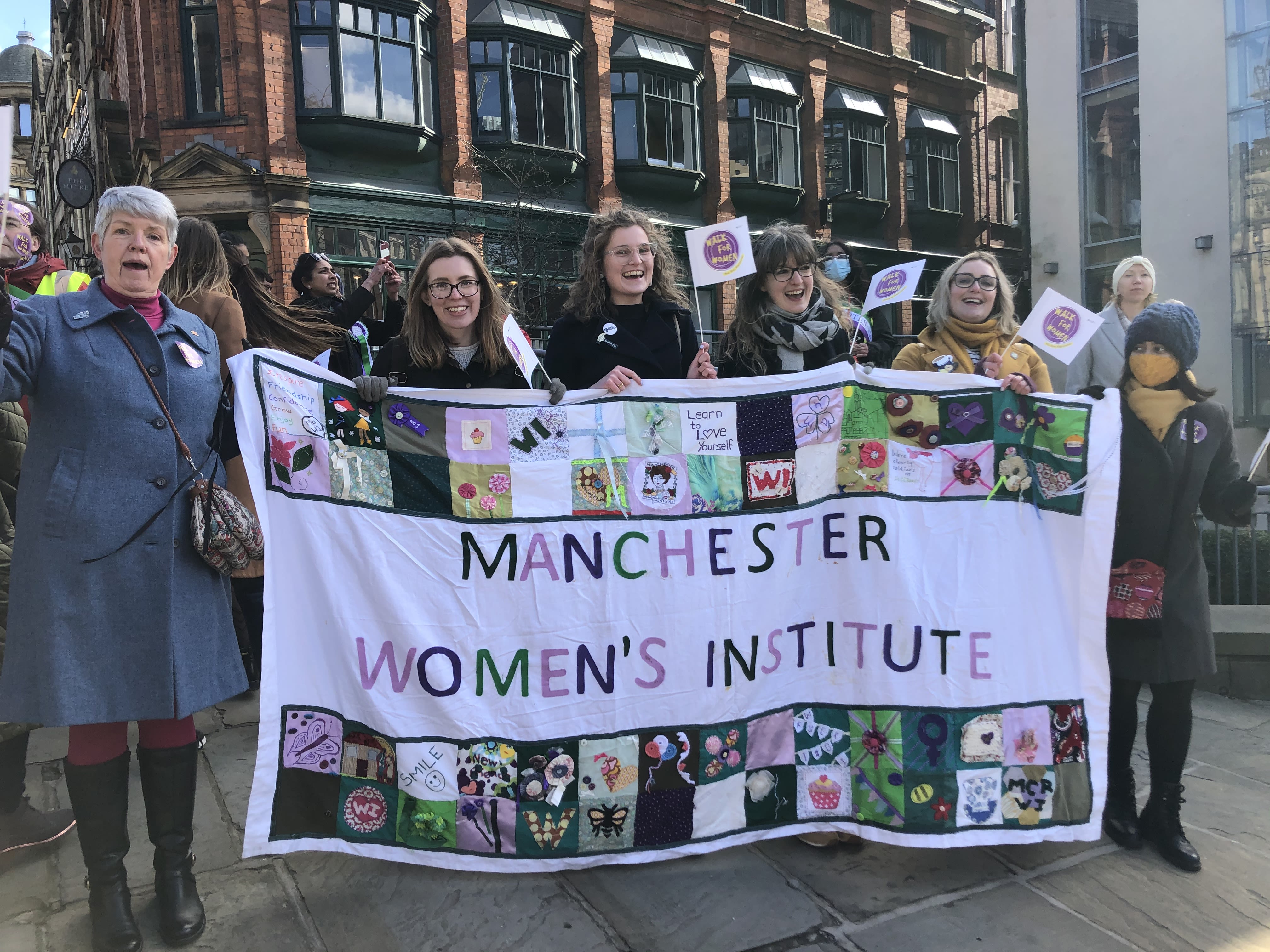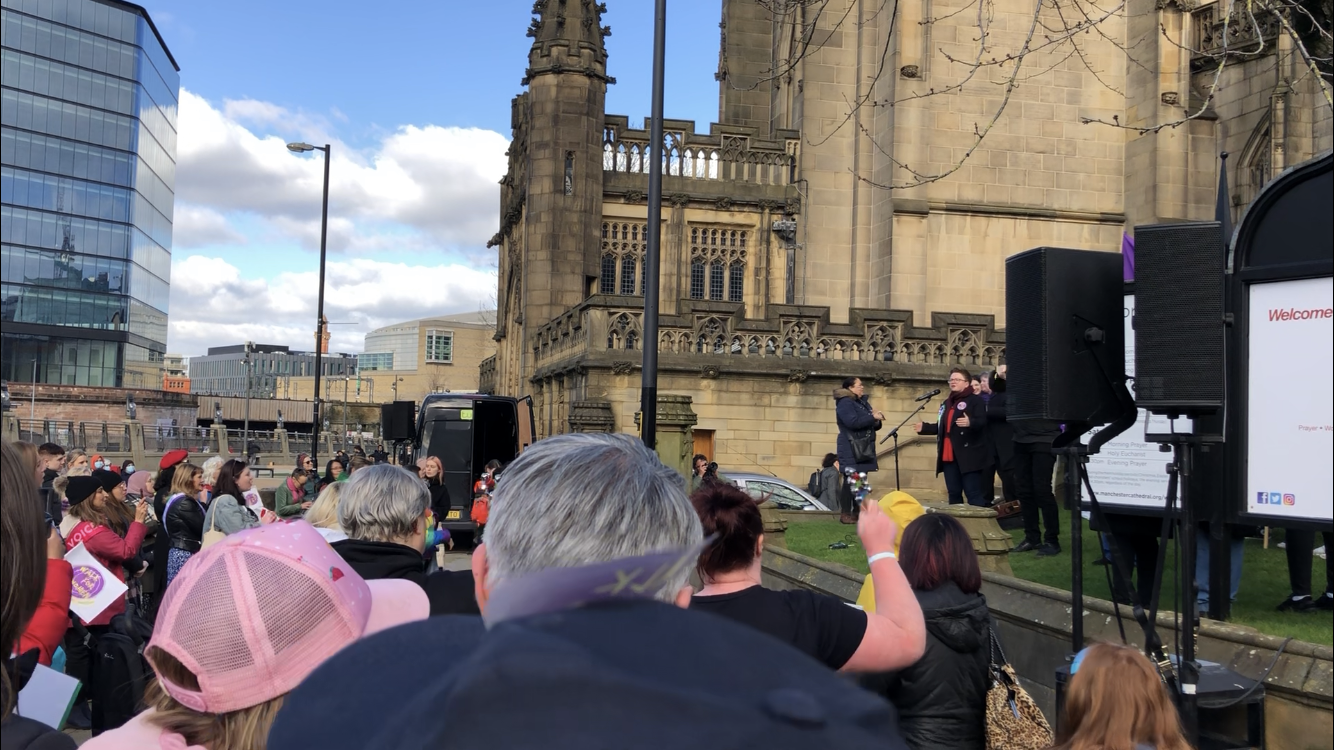The loud voices of Manchester's women
Why we need the city's women to be loud and angry in their pursuit of equality

Manchester’s annual Walk for Women returned this month after two years of the pandemic preventing it from taking place.
Hundreds of people took to the streets of Manchester on the 6th of March to show their support for the women of the city.
It preceded the annual International Women’s Day which takes place on March 8th each year.
Hundreds of women took to the street on the walk from Liverpool Road to Cathedral Gardens armed with drums, whistles, and signs. They chanted lines such as “this is what equality looks like” and they unashamedly made noise with their instruments to call for equality.


Councillor Bev Craig spoke after the walk to give a commitment to the attendees;
“Manchester will do everything, everything in our power to make our city a home of fairness and equality.”
“To make sure that women and girls in our city don’t experience the decades of injustice that we’ve experienced of women in the past and that Manchester women will safely be able to walk around this city.”
The councillor announced that from May a commission on tackling misogyny and violence against women and girls would be instituted in Manchester. One can only hope that the commission will be a strong step forward for the women of Manchester. As the loud cheers and banging of drums from the gathered women supported Craig, she finished by saying,
“We will do more and we need to do more. We can’t do it by ourselves. We need you, the women of Manchester. We need your voices.”

The walk itself took place just days after the anniversary of the murder of Sarah Everard by then PC Wayne Couzens, punctuating just how important events like the one held here in Manchester are. Police recorded crime data showed that 46% of the adult female homicide victims from 2019-2020 in England and Wales were killed in a domestic homicide. While there are more male homicide victims in any given year than females, they are much less likely than women to be killed by a domestic partner.
Women don't just have to fear violence - they have to fear their job security too. More women were furloughed over the first lockdown than men, many doing more unpaid childcare and housework while working from home than their male counterparts.
When faced with lockdown, it seemed women were almost expected to shift back into the roles of housekeeper and childminder. Being expected to be the one to care for the house and children or being more likely to be furloughed meant many more women’s careers suffered in lockdown than men’s, widening a gap that had been closing before the Covid-19 pandemic.
An older woman attending the event told me of these issues, "I don't feel very happy that women don't get paid the same and they still do the lion's share of domestic chores and childcare. I think as women we need to kind of do something about it."
The massive amounts of people present at the event showed just that - women were more than willing to say something and do something about the issues they face.
I spoke to several others attending the event to ask them why they found marches like the Walk for Women so important. One woman said, “When people see a large group of people you turn around and go ‘Oh, what are they going on about?’ then people tune in and you start looking it up."
Another young woman said "Marches [like this] are important. I think especially about making noise about this march today when we've been silenced for so long.
"I think it's important to raise this awareness so people ask these questions about what's going on."
The day was filled with positivity and camaraderie between women but there were failed attempts from some of the crowd to bring down the atmosphere. On two separate occasions, groups of men walked by yelling a phrase rooted in misogyny,
“Get back in the kitchen!”
The hundreds of women ignored them and continued chanting about their search for equality, making so much noise it could almost hurt your ears. The message of the day was clear; there was no time for anyone trying to bring women down. As one woman told me after the event,
"I can just ignore them and keep walking and like, this is not going to go away just because two guys are screaming loudly against us.
"We're still going to keep speaking and doing our thing.
"I think part of it comes with that pride of being who we are and either way it doesn't matter what anyone else is saying."
There may have been those bad apples shouting outdated jokes into the procession but there were many more men supporting the march than there were instigators. Many of them walked with their daughters, wives, sisters, or friends as they showed their support.
Men’s feminism and their support is key to reducing the struggles that women uniquely face. The problem is that many men would rather drown out women’s voices. Google Trends shows that searches for International Women's Day peak on the day itself, the 8th of March.
On the contrary, the searches for International Men’s Day don’t peak on the day itself (19th November). The graph below shows searches for International Men's Day. The sad fact - searches for it peak on International Women’s Day.

The issues men face are incredibly important but for many they’re only brought up in order to silence women’s issues. The many men at the march to support women’s equality showed that the tide is changing and we can only move forward with the struggle.
